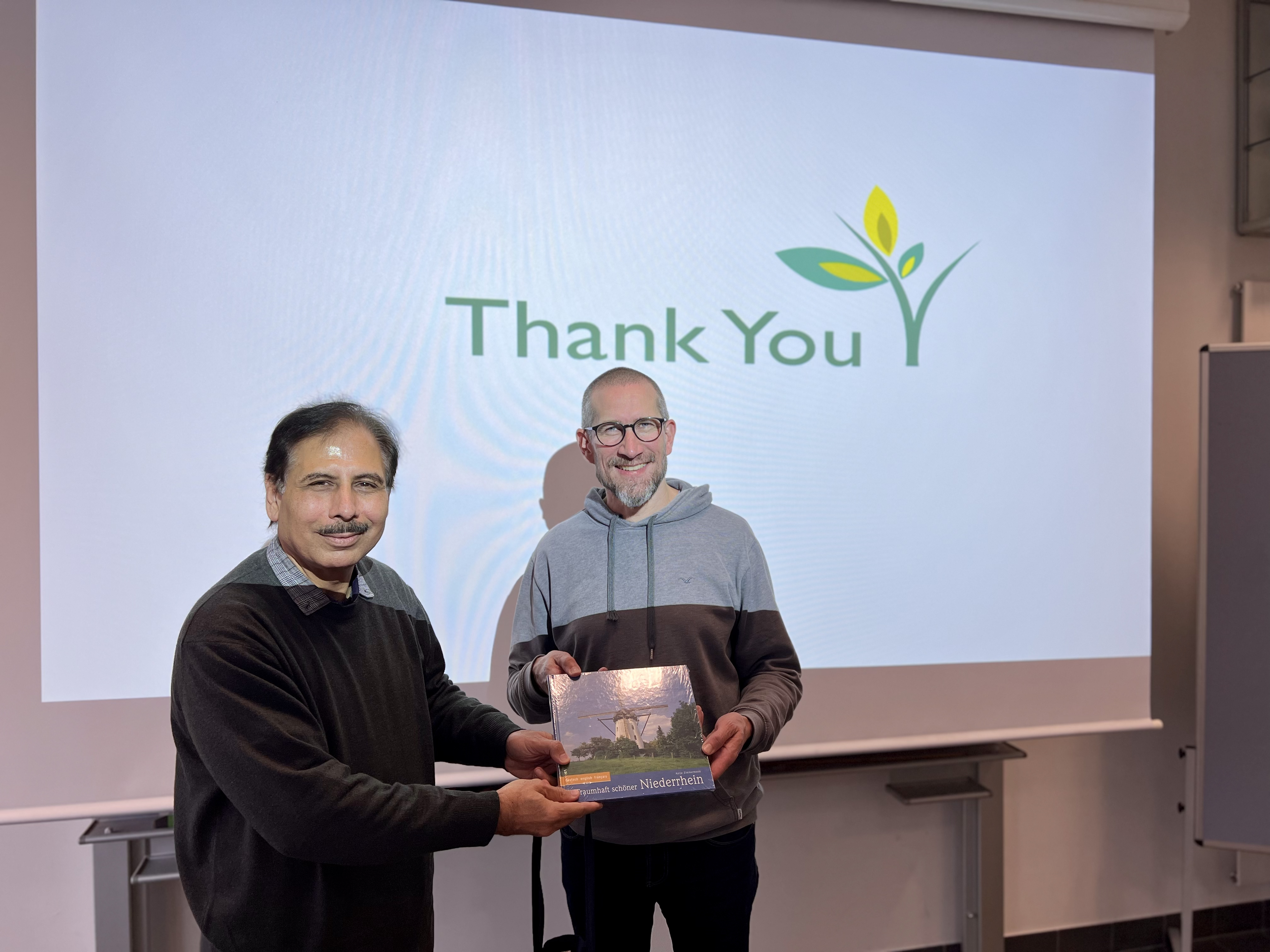New approaches to soil improvement: Prof Dr Khalid Khan presents innovative research on biochar

On the occasion of his three-month research stay at our university, supported by the Alexander von Humboldt Foundation, Prof Dr Khalid Khan, scientist at PMAS-Arid Agriculture University Rawalpindi, gave valuable insights into his research work in the field of biochar. Khan, who works at the Department of Environmental Sciences at his home university, offers exciting prospects for ongoing research at our university.
Prof Dr Khan, whose work is funded by the Alexander von Humboldt Foundation, focuses his research on the development and application of biochar to improve soil quality, particularly in arid agricultural areas. Biochar, obtained through the pyrolysis of biomass, is an advanced form of charcoal that has the potential to both increase soil fertility and significantly reduce environmental pollution.
Sustainable agriculture and environmental protection: the implications of Prof Khan's work
In his detailed presentations, Prof Khan highlighted the results of various studies in which he used different feedstocks such as sugarcane filter cake, rice husks and cattle manure to produce biochar. Each of these biochar variants revealed unique properties that are of great benefit for specific agricultural applications, such as increasing soil fertility or improving the water storage capacity of the soil.
His results show that biochar can not only play an essential role in improving soil quality, but also contribute to the reduction of greenhouse gas emissions in agriculture by acting as a carbon sink.
The work of Prof Khan Department of Environmental Sciences provides fascinating insights into the diverse applications of biochar and presents innovative solutions to some of the most pressing challenges in modern agriculture and environmental science. With further research and development, biochar could play a key role in establishing sustainable agricultural practices on a global scale.
Concluding acknowledgement: Lasting impact on research and environmental protection
At the end of this insightful and inspiring visit, the Faculty of Life Science would like to express their deepest gratitude to Prof Dr Khalid Khan. His dedication and commitment to biochar research has not only opened up new avenues in soil improvement but has also provided valuable impetus for our own research projects.
His work represents a significant enrichment for the scientific community and opens up promising prospects for future developments in the fields of agriculture and environmental protection. It offers approaches for our own projects in the field of soil science and residue utilisation and thus contributes to the further development of our scientific work. His work bears witness to the close scientific ties that stretch from Pakistan to the Lower Rhine and thus emphasises the importance of international cooperation in research.
